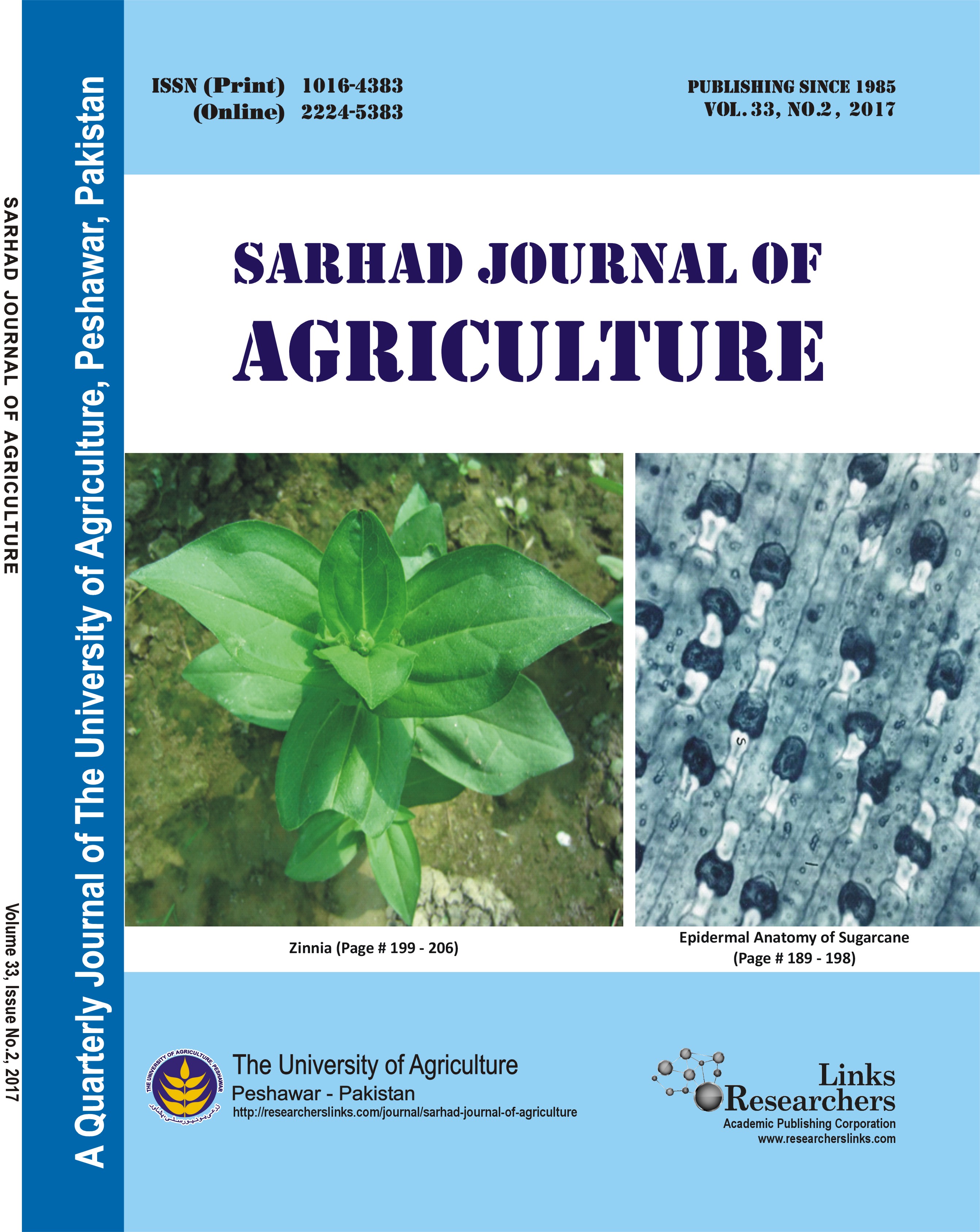Exploring the Rewards and Consequences of Wastewater Irrigation in Vegetables: Case Study of Central Punjab, Pakistan
Exploring the Rewards and Consequences of Wastewater Irrigation in Vegetables: Case Study of Central Punjab, Pakistan
Tahir Munir Butt1*, Azra2, Muhammad Luqman3, Naveed Farah4 and Muhammad Yaseen3
ABSTRACT
To share on other social networks, click on any share button. What are these?







